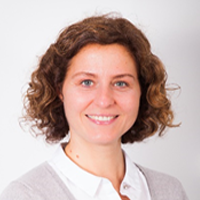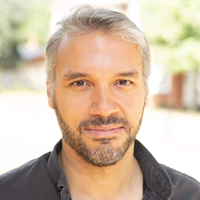Business Buzz
We offer a programme of online courses on the latest business developments. We have a regular monthly series as well as special courses from time to time.
Business Buzz
Who is it for?
Business Buzz is designed for managers, project leaders, and specialists from any business or public sector organisation as well as business school students. The programme content is designed to stimulate thought and ideas about business and technology and we welcome people of all backgrounds.
What is the programme?
Our regular programme includes ten sessions, one per month, throughout the year. Each session is for one hour.
We have a rolling start so participants may join in any month.
How is it organised?
The session is held by one of our expert tutors. The tutor will present the topic and manage discussion points.
Course topics
- Technology and change
- Global business trends
- Growth sectors
- Marketing techniques
- Management and leadership
- Financing a growing enterprise
- Organisation change
- HR and employment trends
- Competence needs
- Business and the environment
Benefits
- Get on top of latest technology developments in business
- Become forward-looking
- Improve communication skills on trends and issues
Cambridge Valid Certificate
Students will receive a Certificate of Attendance with the Cambridge Valid stamp as a valued sign of quality.
Sessions and tutors
Session 1:
22 May, 17.00-18.00 GMT
The Lighthouse Guide to Leadership
Sandra Romenska
This session offers a quick and effective scoping of concepts, ideas and practice for the successful leadership of people and teams. It will shine a spotlight on knowledge, understanding and practical skills required for the successful navigation of the challenging landscape of strategic change, including complexity, failure and resilience, crisis management and crisis as an opportunity.

Dr Sandra Romenska is a Senior Lecturer in leadership and leadership development at the University of St Andrews Business School in Scotland, UK. She also teaches Human Resource Management for the MBA programme of the American University in Bulgaria as a visiting academic. Dr Romenska has experience delivering leadership programmes to a wide range of national and international public and private organisations. She has been an invited speaker at many global forums, including the Project Management Institute Global Congress, the World Universities Forum at Davos, UNESCO, Fulbright. Dr Romenska has managerial experience in the non-government, public and charity sector after working with Save the Children-UK, and at various leadership posts in higher education institutions. She has an MA from the University of Warwick and a DPhil from the University of Oxford.

Dr Sandra Romenska is a Senior Lecturer in leadership and leadership development at the University of St Andrews Business School in Scotland, UK. She also teaches Human Resource Management for the MBA programme of the American University in Bulgaria as a visiting academic. Dr Romenska has experience delivering leadership programmes to a wide range of national and international public and private organisations. She has been an invited speaker at many global forums, including the Project Management Institute Global Congress, the World Universities Forum at Davos, UNESCO, Fulbright. Dr Romenska has managerial experience in the non-government, public and charity sector after working with Save the Children-UK, and at various leadership posts in higher education institutions. She has an MA from the University of Warwick and a DPhil from the University of Oxford.
Sessions and tutors
Session 2:
12 June, 17.00-18.00 GMT
Human, Cyborg, Robot: Three Models for AI in the Workplace
Victor Parchment
Some say that human skill will always be the most reliable economic drivers in many industries and that AI replacement should be regarded with scepticism for its potential harms and limitations (the “Human” Path). Their opponents claim that, instead, AI will free humans from the laborious and the impossibly complex, unlocking new efficiencies and new jobs for all the ones it makes obsolete (the “Robot” Path). But perhaps a third way lies between these extremes, the “Cyborg” Path: AI will indeed change business, not through replacement but through enhancement. The future will belong not to an algorithm but to those who can properly harness it, as past generations harnessed each successive generation of computing. These are all possible futures, but which path is the most likely, and which path is the most desirable?

Member of the Leverhulme Centre for the Future of Intelligence, Cambridge University
Co-Founder and Chief Technical Officer of Iceberg Bio, Victor works to improve data management in healthcare, with a focus on tightening the integration of research and “real world” application. He believes that artificial intelligence could greatly improve human efficiency and efficacy, but more work must be done investigating the ways in which it complements (or disrupts) human workflows, specifically the human factors psychology underlying its design, development, and daily use. He has advanced degrees from the University of Toronto and Cambridge University in the field of Philosophy of Science, with a specialisation in digital tool use (both traditional and ”smart” systems) and their interactions with individual or collective cognitive processes.
Outside of his research, Victor is a full stack software developer and is involved in a number of software and engineering projects, such as the development of adaptive interfaces for clinical decision support systems, and portable hardware solutions to support mobile ad hoc networks for use in disaster relief. Over the past 20 years, he has developed numerous award-winning electronic and software solutions spanning industries as diverse as clinical trials, early childhood education, and humanitarian response.

Member of the Leverhulme Centre for the Future of Intelligence, Cambridge University
Co-Founder and Chief Technical Officer of Iceberg Bio, Victor works to improve data management in healthcare, with a focus on tightening the integration of research and “real world” application. He believes that artificial intelligence could greatly improve human efficiency and efficacy, but more work must be done investigating the ways in which it complements (or disrupts) human workflows, specifically the human factors psychology underlying its design, development, and daily use. He has advanced degrees from the University of Toronto and Cambridge University in the field of Philosophy of Science, with a specialisation in digital tool use (both traditional and ”smart” systems) and their interactions with individual or collective cognitive processes.
Outside of his research, Victor is a full stack software developer and is involved in a number of software and engineering projects, such as the development of adaptive interfaces for clinical decision support systems, and portable hardware solutions to support mobile ad hoc networks for use in disaster relief. Over the past 20 years, he has developed numerous award-winning electronic and software solutions spanning industries as diverse as clinical trials, early childhood education, and humanitarian response.

Member of the Leverhulme Centre for the Future of Intelligence, Cambridge University
Co-Founder and Chief Technical Officer of Iceberg Bio, Victor works to improve data management in healthcare, with a focus on tightening the integration of research and “real world” application. He believes that artificial intelligence could greatly improve human efficiency and efficacy, but more work must be done investigating the ways in which it complements (or disrupts) human workflows, specifically the human factors psychology underlying its design, development, and daily use. He has advanced degrees from the University of Toronto and Cambridge University in the field of Philosophy of Science, with a specialisation in digital tool use (both traditional and ”smart” systems) and their interactions with individual or collective cognitive processes.
Outside of his research, Victor is a full stack software developer and is involved in a number of software and engineering projects, such as the development of adaptive interfaces for clinical decision support systems, and portable hardware solutions to support mobile ad hoc networks for use in disaster relief. Over the past 20 years, he has developed numerous award-winning electronic and software solutions spanning industries as diverse as clinical trials, early childhood education, and humanitarian response.